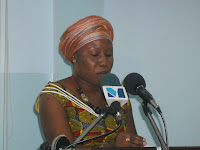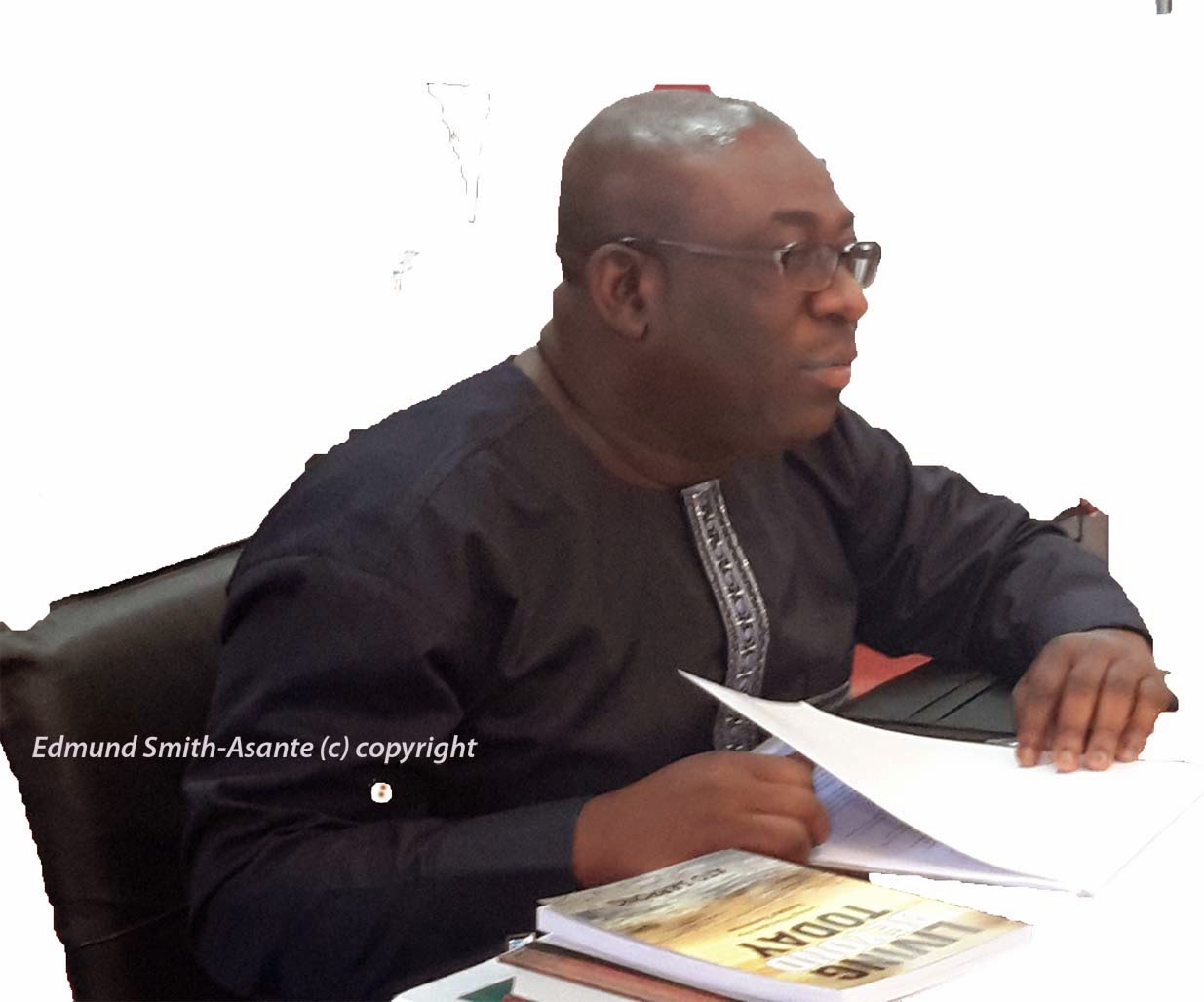Provision of Adequately Treated Water... GHAPOHA Undermining GWCL’s Operations

Provision of Adequately Treated Water...
GHAPOHA Undermining GWCL’s Operations
EDMUND SMITH-ASANTE – ENVIRONMENTAL JOURNALIST
The Ghana Water Company Limited (GWCL), has come under a barrage of attacks from Ghanaians, who have accused the company of consistently providing unwholesome instead of potable water to them through their taps.
While this has largely accounted for the sachet water (pure water) and bottled water revolution in Ghana with its attendant environmental pollution, the water company has on several occasions attributed its predicament to illegal connections to its pipes by some consumers, which has resulted in dirt particles and foreign materials getting into the treated water.
The company has also ascribed the problem to pollution of its water sources, which has also required that more chemicals are used in water treatment at very high cost to them and thus the difficulty in providing adequately treated water to consumers.
However, in spite of the widely publicised and held view that individual illegal commercial users of GWCL’s water are largely to blame for the inadequacies of the company in the provision of potable water to its clientele, it has come to light that the Ghana Ports and Harbours Authority (GPHA), has for the past 15 years been the worst offender.
According to the National Coalition of Non-Governmental Organisations in the Water and Sanitation Sector (CONIWAS), the port authority has since 1995 taken over the sale of treated water to ships that berth at Ghana’s two ports at Tema and Takoradi, which was hitherto the preserve of the Ghana Water Company.
Speaking on behalf of the Coalition at a press conference in Accra on Sustainable Financing of Water and Sanitation Services in Ghana organised by the Foundation For Grassroots Initiatives in Africa on Wednesday February 17, 2010, Mrs. Hawa Nibi Amenga-Etego, Vice Chair, CONIWAS, said “In the past, income from the sale of treated water to ships plying our ports earned substantial foreign exchange to GWCL, which cushioned it against exchange losses in the importation of chemicals for treating water and other consumables.”
“This opportunity has been taken away from the GWCL and given to the Ghana Ports and Harbours Authority for no obvious reason, thus an important source of revenue which used to go specifically into the purchase of chemicals was lost to GWCL,” she lamented, adding “We demand that the sale of water to ships at our ports be reverted to GWCL as a core business.”
In a follow up interview after the press conference organised in collaboration with CONIWAS with the support of WaterAid Ghana (WAG), Mrs. Amenga-Etego, who is also Director, Public Policy, Women and Development, GrassRoots Africa, submitted that
“GPHA buys the water from Ghana Water Company Limited at $2 per cubic metre, and they in turn sell it between $6 and $14 to the ships...which is more than 200% of what they pay for the water from Ghana Water Company.”
“But this business used to be something that was done by Ghana Water Company themselves that paid for about 55% of their chemicals used for water purification. So we are now saying that if 55% of the chemicals for purifying water cannot be taken care of by the sale of water to the ships, then it should be reverted to Ghana Water Company because the complaint is that Ghana Water Company’s water that they supply to the taps is not clean water; the quality is very low...the problem is with chemicals because they are not able to cover all the chemicals they need for water purification,” she stated further.
In her view, reverting that core business of the sale of treated water to ships to GWCL will thus provide much needed funding for chemicals for purification, so that consumers can rely on clean water from their taps instead of having to rely on bottled and sachet water.
Commenting on the same issue in an interview with this reporter, Stanley Martey, Communications Manager of Aqua Vitens Rand Limited (AVRL) acting for and on behalf of GWCL as the Operator, said the ceding of the sale of water to GPHA is hampering the operations of GWCL by way of lost revenue, which could have otherwise helped the company in its operations.
“The sort of money they are collecting on that water, if we were to be collecting that money, it will help us,” he submitted.
Explaining that entrusting the sale of treated water to vessels that berth at Ghana’s two ports to GPHA was government’s policy, Mr. Stanley Martey said AVRL would nevertheless take it up and see how it would work out.
He added that management is currently studying the statement issued at the press conference and would take a decision afterwards. The AVRL Communications Manager disclosed that the company however had its own plans on how to tackle the issue.
Reiterating that reverting the sale of water to ships to GWCL would indeed help the company, he said “Now they sell the water in foreign exchange...now we also need foreign exchange to be buying chemicals and all that,” quizzing, “If we are getting direct foreign exchange, why wouldn’t it help us?”
He said while they sell at commercial rates to GPHA, which is set by the Public Utilities and Regulatory Commission (PURC), he was sure that GPHA sold the water at a higher rate or tariff “maybe ten times more” because they are retailers, thus making more profit.
Mr. Stanley Martey also surmised that many ships prefer Ghana’s water to that in other countries in the sub region because of its high quality, hence a large number of them buy water from GPHA.



Comments
Post a Comment